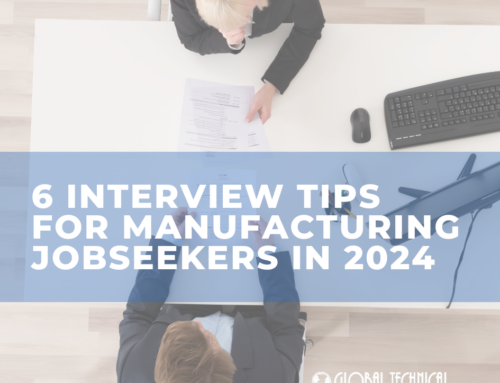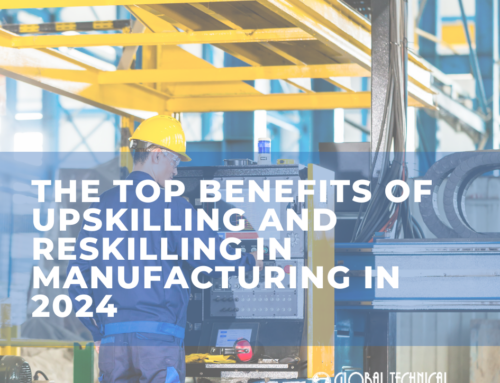It’s important to find candidates with the skills, experience, and education that you need to not only perform a job well but to add value to your organization. In a time of labor shortage and talent storage, it is best for businesses to find new ways to look at resumes and disregard some of the old way of thinking.
While there was once a time that it was beneficial to have both skills and experience, it may be time to consider other ways candidates can express they have what it takes to be a great asset to the organization without having 100% of the required skills or experience for a job role.

Ideally, there would be thousands of applicants who are a perfect fit for your open positions and your business and you would get to choose the best of the best and life would be grand. But with a shortage of not only qualified applicants but a shortage of talent entering the market (i.e. millennials) the odds are not necessarily in the favor of the business.
There is a serious shortage of labor that doesn’t appear to be getting any better, and the answer more than likely lies in attracting millennials to the manufacturing sector. The manufacturing industry could benefit from taking a different stance in looking at how a combination of skills and experience can be a winning combination for a business.
Is it necessary for someone to have the exact skills to work in a job role?

Skills, both hard and soft, show a business that a candidate has taken the time to learn specific skills that are main functions of a job. The hard skills could be CAD training, welding, or another manufacturing function that requires a person to have more than just your average skill set. This kind of skill may also require additional education, which shows desire and drive (which are great soft skills that benefit the employer and employee both!)
The specific hard skills that someone needs to do a job are important for many jobs in the manufacturing industry. Nearly every job out in the manufacturing industry ultimately relies on a wide variety of different tools, programs and procedures to accomplish a job. This is especially true in the fast paced world of manufacturing. Technical skills are important because they prove you’ve taken the time and taken on the extra education required to do a technical job to the best of that candidate’s abilities.

CNC machining, CAD design, fabrication, and more require skills and certifications that prove someone goes through the hours and education necessary to perform a job. These kinds of certifications are necessary and are great in partnership with experience on someone’s resume.
Reviewing the resume and including pre-screening questions that allow a candidate to answer about their har skills makes it easier for you and your hiring team to determine if the candidate possesses the technical hard skills required of the job. Asking the right questions during an interview can help you determine if a candidate has the right soft skills to be a good fit at your organization. But what is the difference between hard and soft skills and why are they important to an employer?
What are the differences between hard and soft skills?
Soft skills are the skills that show employers the kind of employee you are. This includes things like your teamwork skills, your ability to make objective decisions, how well you are able to plan, time management skills, and how well you process information and take action. These can be proven in a lot of instances too but aren’t necessarily things like training, certifications, and education.
Other skills required can be less focused on the actual technical skills for a job but what interpersonal and soft skills are required for someone to do a job effectively.

Problem solving, teamwork, communication, general computer skills, and professionalism all can be just as important as these tangible skills required for positions.
Hard skills are actual skills that can be tested and proven. However, technical skills aren’t always the best measure of how well a person will do in a job and how great of an employee they will be for a potential employer. Skills like this often get more attention as they are a clear and easy metric for you to use to ensure you are fairly comparing a candidate to another similar candidate. Hard skills show mastery and specific knowledge of specific techniques – which are very important to a lot of roles in a manufacturing business.
Is it necessary for someone to have the exact experience to work in a job role?
Experience just simply cannot be taught. The kind of wisdom one can get from hands-on experience allows someone to make critical decisions in real time is something that cannot be learned any other way. Being adaptable to many different situations can come from skills but it also comes from education and real-world learnings.

Experience is also important because it shows a desire and a dedication to learn a certain job or industry but also it shows just a desire to learn and hone in on a specific skill set. While this potential employee was likely able to learn a new job or move to another department in previous organizations, they chose to stay and become better and more skilled at their role showing a deeper understanding and desire to become the best that they could. This is good news for businesses who are looking to employ them!
So what’s better – a candidate that has skills or experience?
The answer to this question is that each candidate is different but generally, having a candidate that has both is a big win for businesses.

There is a large benefit of gathering a variety of employees with different combinations of experience and skills. Tying back to soft skills, soft skills specific to a job role can come with experience too! If teamwork is something that is integral to success in a position, learning how to foster it first-hand through experience means a better contribution to the company as a whole.
It’s always important to remember, at the end of the day you are hiring a person to fill a job within your company. A person can come to the interview with an impressive collection of both experience and skills and still not be a good fit for your job and your company.
Want to find a way to save time finding quality candidates with the skills and experience you need?
GTR can help. We’ve been successfully placing candidates in multiple industries for over 18 years now. We know a thing or two about being a valuable partner to businesses big and small everywhere that are looking to add some more muscle to their hiring. Contact us today to see how we can help you reduce hiring stresses and get your time back.





